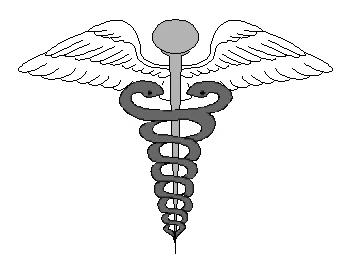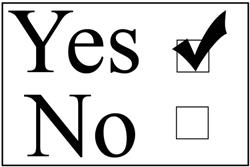By Michael Diggin

By Michael Diggin
HEALTH CARE COVERAGE REQUIREMENTS. REFERENDUM.
We are fast approaching a crisis in the state of California: A health care crisis.
Emergency rooms throughout the state are closing their doors, primarily because of the large number of uninsured patients who are unable to pay for their treatment, as shown in a recent report by the California Medical Association.
Health care costs are skyrocketing. The amount California families pay for premiums increased 70 percent in the last three years alone. Not to mention that last year employee premiums increased at twice the rate of business premiums. Employees, not employers, are inordinately shouldering the escalating cost of health care.
Proposition 72 will help ameliorate this crisis.
Proposition 72 mandates that all businesses with more than 50 employees must provide health care benefits to all employees who work more than 100 hours per month. The employer may provide their own health insurance options, but must provide 80 percent of the coverage. Employers can also choose to pay a fee to the state. This fee then goes to a state board that purchases private health care for the employees.
Health care coverage is not an inalienable right, but medical costs for the uninsured are so exorbitant that few can afford to pay them. This leads many to put off treatment until emergency care is necessary, further burdening our already heavily strained emergency health care system. Preventative care keeps minor problems from developing into the kind of life-threatening illnesses that crowd emergency rooms.Health care may not be a right, but life itself is. Lack of health-care coverage should not infringe on our right to “life, liberty, and the pursuit of happiness.”
Opponents of Proposition 72 insist on labeling it government-run health care; in fact the main opponent of the proposition calls itself “Californians Against Government Run Healthcare” to stress this point. Yet Proposition 72 is not Medicare; it would not contract directly with health care providers. It would simply help provide private coverage for those who have earned it.
Proposition 72 would help ease the burden on overcrowded emergency rooms by ensuring that 1.1 million working people without medical coverage have access to preventive care, greatly reducing their chances of having to be admitted for emergency treatment. It would also help ease the fiscal burden by reimbursing hospitals for services rendered, instead of leaving them to foot the bill. These factors contribute to the closure of emergency rooms all over the state.
The more emergency rooms that close, the larger the burden on those that remain. This would exacerbate an already critical situation, forcing more overcrowding and piling more costs on centers already operating at a loss. This could lead to a domino effect causing the few remaining emergency centers to close their doors, sooner rather than later.
The California Department of Economic Development statistics show that 93 percent of California businesses are exempt from Proposition 72, so the idea that it would put small businesses out of business is ludicrous. The vast majority of small businesses would not even be affected. They are exempt by their very nature; the proposition does not apply to those businesses with less than 50 employees.
More government bureaucracy is rarely the answer to any problem. The creation of more bureaucracy to oversee this program entails additional costs for a state already deep in debt. These reforms, however, are needed now. It is a step in the right direction, and passing the proposition will help relieve some of the burden on the state’s hospitals.
The state legislature already passed Proposition 72 and it is only on the ballot because of the actions of special interest groups. McDonald’s is a major supporter of the effort to stop this legislation, contributing more than $663,000. Forcing franchises to pay for 80 percent of health coverage for their employees would severely cut into their profits.McLegislation and McHealthcare sound about as appetizing as a greasy Big Mac and are just as unhealthy for our body politic.







